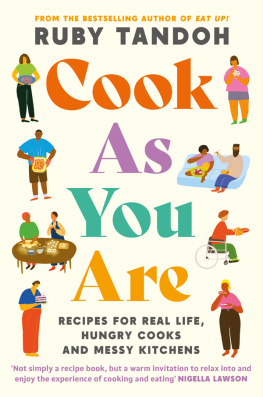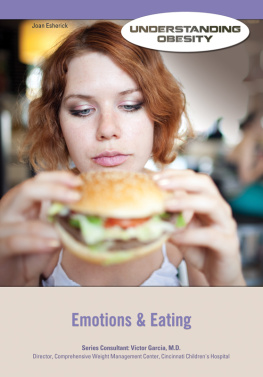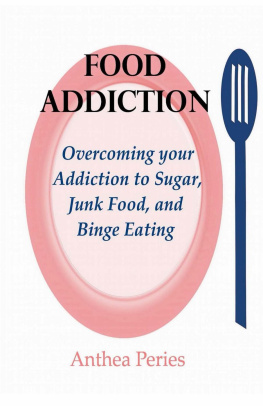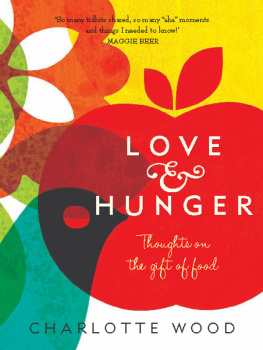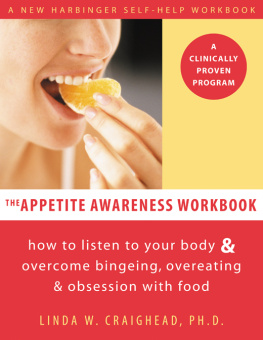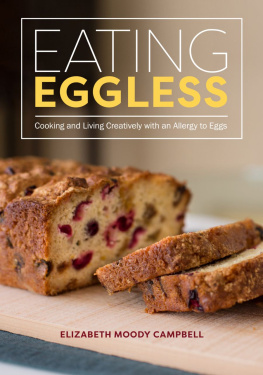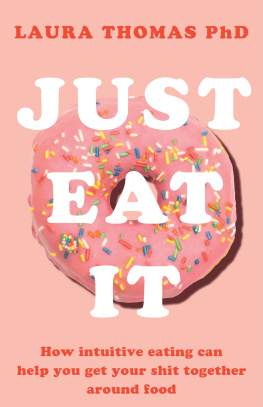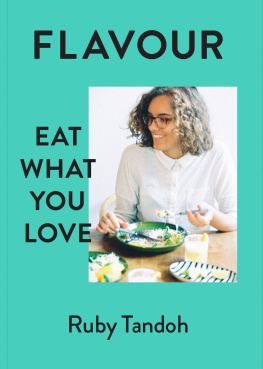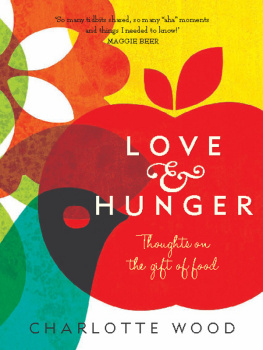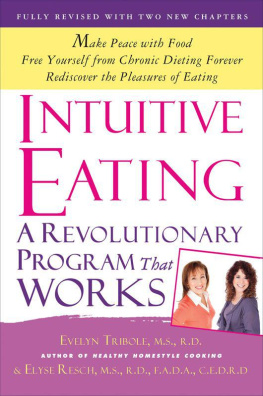EAT
UP!
Ruby Tandoh is an author and journalist who writes for, among others, the Guardian, Elle and Vice. A finalist on the 2013 Great British Bake Off, she has published two cookery books, Crumb and Flavour. She lives in Sheffield.
RUBY TANDOH
EAT
UP!

First published in Great Britain in 2018 by Serpents Tail, an imprint of Profile Books Ltd 3 Holford Yard
Bevin Way
London wc1x 9hd
www.serpentstail.com
Copyright Ruby Tandoh, 2018
The moral right of the author has been asserted.
All rights reserved. Without limiting the rights under copyright reserved above, no part of this publication may be reproduced, stored or introduced into a retrieval system, or transmitted, in any form or by any means (electronic, mechanical, photocopying, recording or otherwise), without the prior written permission of both the copyright owner and the publisher of this book.
A CIP catalogue record for this book is available from the British Library.
eISBN 978 1 78283 407 6
Everybody gotta eat, right?
Common
Contents
Introduction
When our souls are happy, they talk about food. Charles Simic
I often think about where food begins and ends. I dont necessarily mean the chronological beginning and end the one-way march through time, from field to plate although that certainly plays a part. I mean the whole picture. Youre holding an iced ring doughnut in your hand I mean the sticky edges where the doughnut meets skin, the long sweet history of beignets and crullers and cronuts, and the impulse to snack. I mean the science that turns heavy dough a deep orange hue when it hits the fryer, and the social currency of a doughnut box at work. Every mouthful of plain glazed Krispy Kreme ring or funfair cinnamon sugar doughnut is a bite of all of this the human taste for sweetness, and a global doughnut love affair thats the making of us from the belly up.
Sometimes we lose all of this magic in the margins. Even though food is everywhere in our social fabric and in our culture, its still squeezed into one thing or another. Diet gurus make food the sum of calories and carbs. Self-avowed foodies use food as a code for class. Restaurant critics polish food into a smooth, substance-less thing, while food writers like myself are guilty of constructing a fantasy food world that sits outside of real life. All of these conflicting ideologies mean that food is, in many ways, more complex and controversial than ever. Were sat right in the middle of a smorgasbord that stretches from Nevada to Nauru trifles and meatballs and spare ribs teetering all around, wine flowing from fountains, all of the earths bounty at the end of our forks and were too conflicted to take a bite.
Somehow, the most elemental, easy, joyful thing we can do has become a chore and a source of anxiety, and we begrudge these blurry boundaries that encroach on us when we take the outside world inside us, and make ourselves from the inside out. Food is the point where our bodies merge with the vast universe outside, and thats scary. So, as a society, weve created whole industries fighting that fear: natural foods, nutrient supplements, industrial farming, organic produce all of these radically different, often contradictory, ideas are designed to give us a sense of control over this wild, delicate planet, and the bodies we inhabit. We dont want to go hungry, we dont want to be greedy, we dont want to live too exuberantly, we dont want to be a kill-joy. We fret about our size and shape, and too often police the bodies of others. We accept the lie that theres a perfect way of eating that will save your soul and send you careering blithely through your eighties, into your nineties and beyond. Do what you want, were told but youll die if you get it wrong.
I dont want you to feel this way. Food shouldnt be a bad boyfriend, dragging you down or holding you to ransom. It should nourish your body as much as it fuels your mind; it should pump life through your veins; it should waltz in sync with your mood and your appetite, sometimes blissful, often mundane, always a part of you. This communion with food doesnt need to be something magical. In fact, part of making peace with your appetite is acknowledging that its not always pretty, and sometimes you will enter a fugue state halfway through a packet of Cadbury Fingers and eat the lot and feel ill, and thats OK. Not every meal will be in some sunlight-dappled orange grove; sometimes what you need is a pasty by the side of the M4, and theres no harm in that.
I wrote this book as an antidote to all these confused, disjointed approaches to food. I dont want to tell you what to eat, how, when or where. There is no single right way to eat, and you should be duly suspicious of anyone who tells you there is. What this book is about is everything that happens in the peripheries when we take a bite: the cultures that birth the foods we love, the people we nurture, the science of flavour and the ethics of eating. Ive researched the tangled origins of some of our favourite foods, from waffles to Graham crackers, explored the place that we humans inhabit in the food chain, and looked at food anew through the lens of some of my favourite films. You can learn as much about food in five minutes of Moonlight as you can in five hours of MasterChef, and be nourished way more by Keliss Milkshake than a pint of Soylent.
I want you to eat the whole picture, because when you do that, food tastes better than ever. I want you to love yourself enough not to feed yourself dry sandwiches for dinner, or skip eating altogether. The way you feel about food sits hand in hand with the way you feel about yourself, and if you eat happily and wholeheartedly, food will make you strong. I want you to feel fine about the messiness of your illogic al, impulsive appetite, and sometimes overeat, sometimes undereat, and still hold tight in your self-care. I want you to absorb as much of this big, weird world as possible. I want you to eat up.
The magic
Blackberrying
When I was eight or nine, my grandmother was living in a house in a sleepy Essex suburb. I often visited her with my younger siblings in tow, and we used to spend much of our stay in the garden. Grannys garden was her pride and joy, kept as neat as a guardsmans coat, the grass soft and verdant, shrubs blooming in bright colours. Granny kept order with a pair of garden shears, her eagle eyes, and a tub of slug pellets. When we went there during the summer, we were as carefully fussed over, preened and pruned as the roses and the rampant buddleia. I would stand in the sun, sipping orange juice and gripping the grass between my bare toes.
What I loved more than this garden, though, was the scrubby track that ran alongside it and out into the wood beyond. The track shrugged up against my grandmothers house and garden, its nettles, hollyhocks and tangles of thorns running shoulder to shoulder with the neatly coiffed gardenias and chrysanthemums, separated by the thinnest panels of a smart, stained wooden fence. When we walked along this track, I would linger over matted grey tufts of badger fur, an ants nest, a pile of horse poo these things were a thousand times more interesting than Grannys perennials.
A few hundred yards along this mud trail were the blackberry bushes. They scrambled up the roadside, along fences and over ragged stone walls, thick with thorns and clusters of inky blackberries, some branches hanging low over the track, drooping heavily with fruit. One day, we traipsed along with old ice cream cartons and clustered around these brambles, pulling the fattest, darkest berries from the branch and throwing them, alternately, into our cartons and our mouths. Picking the perfect blackberry took some practice: the sweetest berries were the softest, and so the most likely to crush in your grip as you pinched them from the stem. You had to be careful, all the while whipping your hands back from the pricks of the thorns. Bright purple, sticky juice muddled with countless tiny cuts and grazes, which would sting hot all the way back home.


